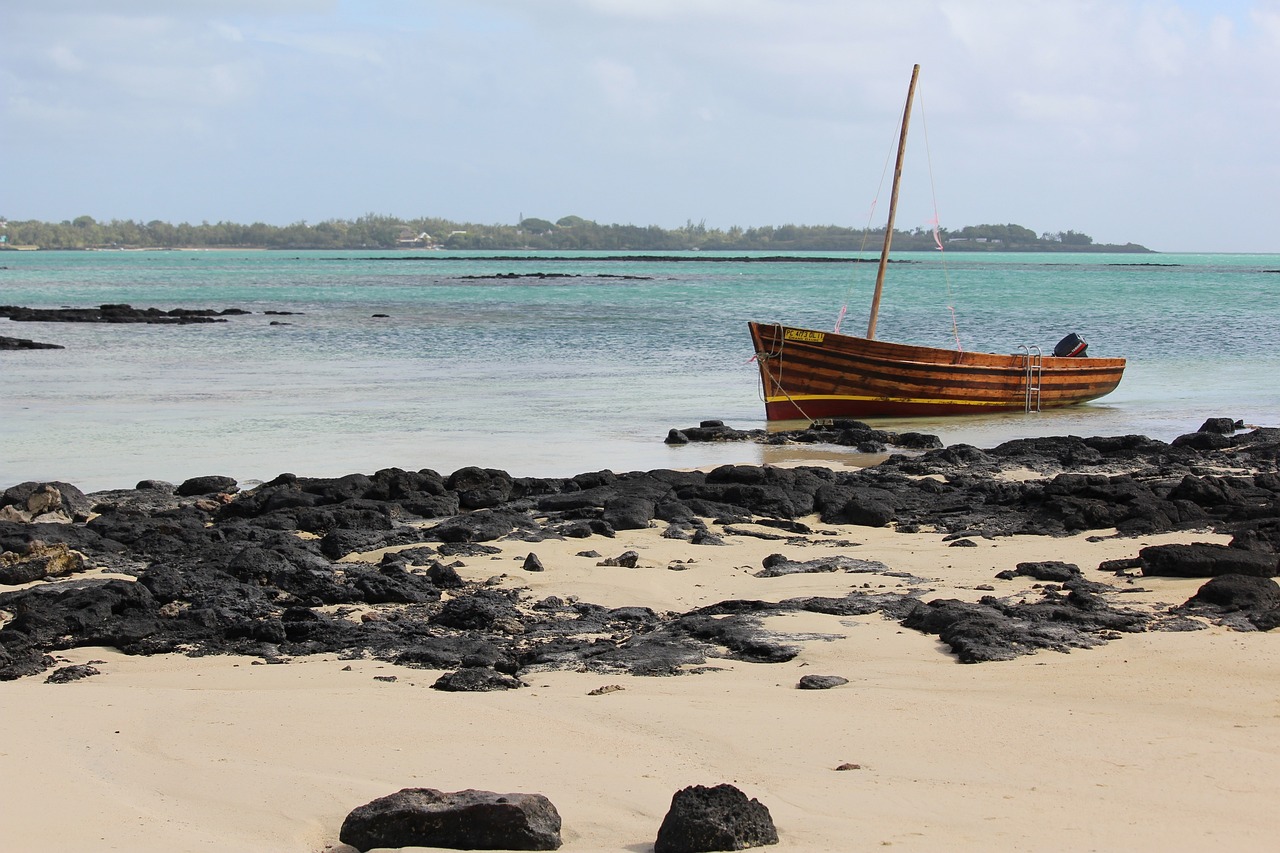Introduction
Mauritius is a stunning island nation located in the Indian Ocean. Known for its beautiful beaches, diverse culture, and thriving economy, Mauritius is an attractive destination for expatriates looking for work opportunities. Managing finances and payments while working in Mauritius is a crucial aspect of living and working in the country. This article aims to provide detailed information on various aspects related to managing finances and payments in Mauritius.
Banking System in Mauritius
Managing finances in Mauritius starts with understanding the country’s banking system. The banking sector in Mauritius is well-developed and offers a wide range of services to individuals and businesses. The major banks in Mauritius include ABC Banking Corporation, Bank One, and Barclays Bank Mauritius. These banks provide services such as current and savings accounts, loans, credit cards, and online banking facilities. It is advisable for expatriates to open a local bank account upon arrival to facilitate financial transactions.
- Current and Savings Accounts: Local banks in Mauritius offer various types of current and savings accounts tailored to meet different needs. These accounts come with features such as debit cards, checkbooks, and online banking facilities.
- Loans: Banks in Mauritius offer personal loans, housing loans, and car loans to individuals. Expatriates can avail these loans, subject to certain eligibility criteria.
- Credit Cards: Major international credit cards are widely accepted in Mauritius. Local banks also issue credit cards to customers, allowing them to make payments conveniently.
- Online Banking: Most banks in Mauritius provide online banking facilities, allowing customers to manage their accounts, make payments, and perform other banking transactions remotely.
Mauritian Currency and Exchange Rates
The official currency of Mauritius is the Mauritian Rupee (MUR). It is advisable to familiarize yourself with the exchange rates and currency conversion processes to effectively manage finances in Mauritius.
- Exchange Rates: The exchange rates between the Mauritian Rupee and major international currencies fluctuate daily. It is recommended to check the latest exchange rates before making any currency conversions.
- Currency Conversion: Currency exchange services are available at banks, exchange bureaus, and some hotels in Mauritius. It is advisable to compare rates and fees before converting currency.
- ATMs: ATMs are widely available in Mauritius, allowing individuals to withdraw cash in the local currency. However, it is important to check for any associated fees or charges.
Taxation in Mauritius
Understanding the taxation system in Mauritius is essential for effective financial management. Mauritius has a progressive tax system, where individuals are taxed based on their income.
- Income Tax: Residents of Mauritius are subject to income tax on their worldwide income. Non-residents are taxed only on their Mauritian-sourced income. The income tax rates vary depending on the income brackets.
- Value Added Tax (VAT): VAT is applicable on the supply of goods and services in Mauritius. The standard rate of VAT is 15%, with some exemptions and reduced rates for specific categories.
- Corporate Tax: Companies operating in Mauritius are subject to corporate tax on their profits. The standard corporate tax rate is 15%, with certain incentives available for specific sectors.
Managing Expenses in Mauritius
Effectively managing expenses is crucial for maintaining financial stability while working in Mauritius. Here are some key points to consider:
- Housing: Rent is a significant expense in Mauritius. It is advisable to research the rental market and find accommodation that suits your budget and preferences. Popular areas for expatriates include Grand Baie, Flic en Flac, and the capital city, Port Louis.
- Transportation: Mauritius has a well-established public transportation system, including buses and taxis. It is important to budget for transportation expenses, including daily commuting and occasional trips.
- Utilities: Utilities such as electricity, water, and internet services are essential expenses. It is advisable to compare service providers and choose cost-effective options.
- Groceries and Dining: Mauritius offers a wide range of dining options, from street food to fine dining restaurants. It is recommended to budget for groceries and dining out expenses based on personal preferences.
Investment Opportunities
Mauritius provides various investment opportunities for individuals looking to grow their wealth. Some popular investment options include:
- Real Estate: Investing in real estate in Mauritius can be a lucrative option. The government has introduced schemes such as the Property Development Scheme (PDS) to attract foreign investors.
- Stock Market: The Stock Exchange of Mauritius offers opportunities for individuals to invest in listed companies. It is advisable to seek professional advice before entering the stock market.
- Investment Funds: Mauritius is known for its robust investment fund industry. Individuals can invest in various types of funds, including mutual funds, private equity funds, and hedge funds.
Insurance and Retirement Planning
Planning for insurance coverage and retirement is essential for long-term financial security. In Mauritius, individuals can consider the following options:
- Health Insurance: While Mauritius has a public healthcare system, private health insurance provides additional coverage and access to private healthcare facilities.
- Life Insurance: Life insurance policies offer financial protection for individuals and their families in the event of unexpected events.
- Retirement Planning: Contributing to a pension scheme or retirement plan is crucial for building a secure financial future. Employers in Mauritius are required to provide a pension scheme for their employees.
Mauritius Image 1:

Managing International Payments
While working in Mauritius, individuals may need to make international payments. Here are some options for managing international transactions:
- International Bank Transfers: Banks in Mauritius offer international wire transfer services, allowing individuals to send and receive money internationally. It is important to consider fees and exchange rates.
- Online Payment Platforms: Online payment platforms like PayPal and TransferWise provide convenient options for sending and receiving money globally. These platforms often offer competitive exchange rates.
- Cryptocurrencies: Cryptocurrencies like Bitcoin and Ethereum provide an alternative way to manage international payments. However, it is important to understand the risks and regulatory aspects associated with cryptocurrencies.
Mauritius Image 2:

Emerging Fintech Industry
Mauritius has been actively promoting the development of its fintech industry. The government has introduced initiatives to attract fintech companies and promote innovation in the financial sector. Some key aspects of the emerging fintech industry in Mauritius include:
- Mobile Payments: Mobile payment solutions have gained popularity in Mauritius, allowing individuals to make payments using their smartphones.
- Peer-to-Peer Lending: Peer-to-peer lending platforms connect borrowers directly with lenders, providing an alternative to traditional banking channels.
- Blockchain Technology: Mauritius has shown a keen interest in exploring the potential of blockchain technology in various sectors, including finance.
Retirement and Pension Systems
Mauritius has a comprehensive retirement and pension system in place to ensure financial security for its citizens. The system includes:
- National Pension Fund: The National Pension Fund (NPF) is a mandatory contributory pension scheme for employed individuals in Mauritius. Contributions are made by both employees and employers.
- Occupational Pension Schemes: Employers may offer occupational pension schemes to their employees, providing additional retirement benefits.
- Voluntary Pension Schemes: Individuals can also contribute to voluntary pension schemes to supplement their retirement savings.
Mauritius Image 3:

Conclusion
Managing finances and payments while working in Mauritius requires a comprehensive understanding of the country’s banking system, taxation, expenses, investment opportunities, and retirement planning. By effectively managing finances, individuals can ensure financial stability and make the most of their time in this beautiful island nation.
References
– ABC Banking Corporation: www.abcbanking.mu
– Bank One: www.bankone.mu
– Barclays Bank Mauritius: www.barclays.mu
– Stock Exchange of Mauritius: www.stockexchangeofmauritius.com
– National Pension Fund: www.npf.mu

